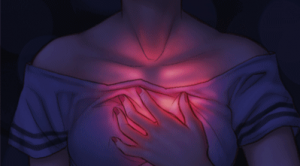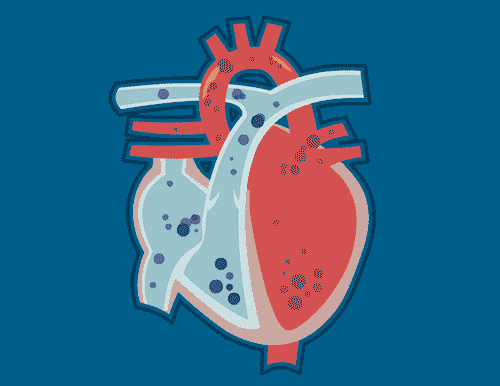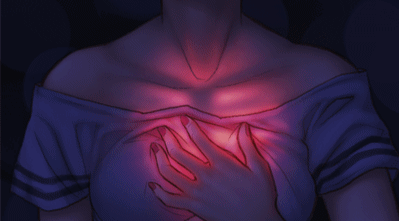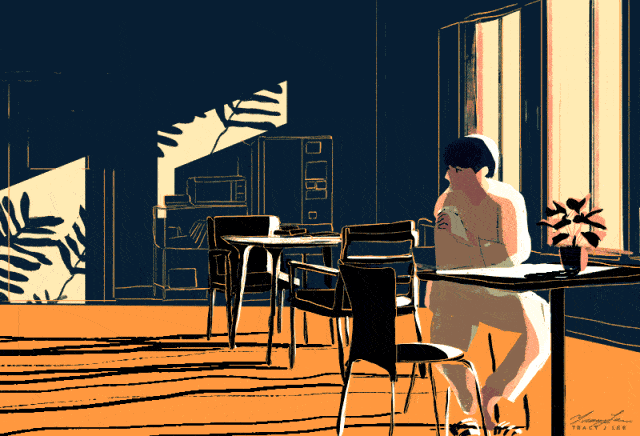
Excitement, tension, blood vessels will “crimp”
When a person is in a stressful state such as over-excitement, tension, and anxiety, the sympathetic nerves will be very excited and easily induce vasospasm.

When vasospasm occurs, the smooth muscles of the blood vessels will contract strongly, and the blood vessels will become narrowed, resulting in a decrease in blood flow to the organs, thereby inducing coronary or cerebral artery spasm. If it occurs in the coronary arteries, severe angina, myocardial infarction or arrhythmia may also occur.
Stress will increase blood pressure
When people are stressed, stress hormones such as cortisol, epinephrine and norepinephrine will increase, resulting in a series of reactions such as increased heart rate, increased blood pressure, and vasoconstriction.
Under long-term stress, it can also cause cholesterol to rise, blood sugar to rise, and platelet viscosity to increase. These stress reactions will gradually damage the vascular system, leading to high blood pressure and vascular damage, and even become the fuse of a heart attack.
Hostility, resentment, heart breakdown
Hostile emotions include cynicism, resentment, etc. Long-term existence of such emotions will scar your heart.

Researchers from the University of Tennessee and the University of Kentucky conducted a study on 2,321 heart disease patients with an average age of 67, and found that 57% of them were hostile.
Frequent antagonistic and hostile threats to heart health are no less than traditional factors such as smoking and hypercholesterolemia, and such emotions are more likely to induce acute myocardial infarction and angina pectoris.
Sad, “broken” heart
In a state of extreme sadness, such as the sudden death of a loved one or a broken relationship, the sympathetic nerve will secrete a large amount of catecholamines, adrenaline, etc. Under the stimulation of these excessive hormones, the heart may undergo apical changes, and the myocardial contractility is suddenly weakened, which induces Severe chest pain, suffocation, shortness of breath and other heart disease-like symptoms are called “broken heart syndrome” or “stress cardiomyopathy.”
This does not mean that the heart is really “broken”, but the pain is like a broken heart. After treatment, “broken heart syndrome” usually has a good prognosis, but some patients still die because of ventricular fibrillation and cardiac arrest without timely rescue.
Anger, induces atrial fibrillation
Studies have found that irritable men have an increased risk of atrial fibrillation by 20% to 30% within 10 years; women who like to vent their anger to others have a 30% increased risk of atrial fibrillation.

Panic, work pressure, and negative emotions are also related to the occurrence of atrial fibrillation. Bad emotions can also make people who already have atrial fibrillation get more frequent attacks. On the contrary, pleasant emotions have a protective effect on the occurrence of atrial fibrillation.
Lonely, suffocating coronary heart disease
The famous “Roseto effect” in the field of mind and body medicine tells the story of a small town called Roseto in Pennsylvania, USA. The local residents are all Italian immigrants. In the 1960s, an American doctor named Stewart Wolf was surprised to find that Roseto residents had a very low probability of suffering from heart disease and death. Men over 65 had only a heart attack death rate. Half of the death rate from heart disease in the United States.

A follow-up investigation found that although residents here have the same risk factors for heart disease as residents in other areas, Roseto has a community atmosphere of mutual help. Neighbors in the neighborhood watch and help each other, and generations of people are living together under one roof. The words “lonely” and “depressive” have nothing to do with the Roseto.
It is a pity that when the next generation of residents bid farewell to their traditional lifestyles and retreated into closed small families, the incidence of coronary heart disease among town residents continued to rise. This proves how important a warm and harmonious community life is to the prevention and treatment of heart disease.
“Warm heart” reminder:
Every excessive mood swing is a devastation to the heart.
When intense anxiety, tension, anger, fear, depression and other emotions come to you, find a place where there are few people and shout loudly, or reduce stress hormones by means of deep breathing, meditation, music therapy, Baduanjin, Tai Chi and yoga. Secretion and heal your emotions.
When heart disease patients are under high pressure, they can take a deep breath for 5 seconds and then breathe out for 5 seconds. Repeating this will help calm the mood.
If you are in a bad mood for a long time and cannot resolve it by yourself, you can consult a psychologist for help. Suddenly suffer a severe emotional blow, and show chest tightness, chest pain, palpitation, and suffocation. You must seek medical attention in time.
Comments